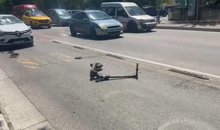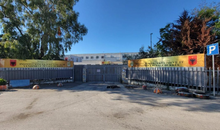
 Flash News
Flash News
Drenova prison police officer arrested for bringing drugs and illegal items into cell
Lavrov: NATO is risking self-destruction with new military budget
Kurti and Vučić "face off" tomorrow in Skopje
Construction worker dies after falling from scaffolding in Berat
The prosecution sends two Korça Municipality officials to trial
Elections in Kosovo/DW Analysis: Concerns, Serbia and internal problems!
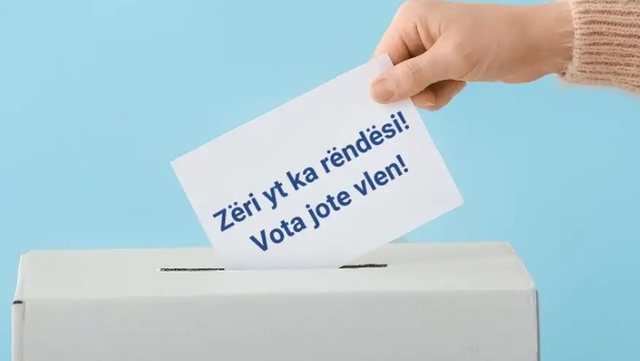
Kosovo elects a new parliament on Sunday. Although the conflict with Serbia dominates the news in Kosovo and abroad, young voters want politicians to focus on other issues.
Pristina, the capital of Kosovo, is awash with election posters. From lampposts, billboards and walls, politicians’ faces smile at passersby, while catchy party slogans aim to garner support on election day. Kosovo heads to the polls on Sunday (09.02.). These will be the first regular parliamentary elections since declaring independence from Serbia in February 2008.
From 2008 to 2021, only snap elections have been held. Candidates compete for 120 seats in parliament. Twenty of these seats are reserved for members of national minorities, half of which belong to Kosovo Serbs. Until the 2021 elections, the country was governed by coalitions consisting of the Democratic Party of Kosovo (PDK) and the Democratic League of Kosovo (LDK), which were led by figures from the independence movement of the 1990s.
But the 2021 parliamentary elections were won by the social-democratic Vetëvendosje movement, led by Albin Kurti, a former student leader and political prisoner under Serbian dictator Slobodan Milosevic. Kurti is running for a second term on Sunday.
Clash with Serbia
Over the past four years, Kurti has radically changed the direction of Kosovo's foreign policy. While previous Kosovo governments had acted in close coordination with international allies, especially the United States, the current government has acted largely independently since 2021.
The main priority of Prime Minister Albin Kurti appears to be the implementation of Kosovo's full sovereignty in relation to Serbia and to free the country from the influence of international protective powers, whose policies the Vetëvendosje Movement considers "colonialist".
Since 2011, the European Union has been trying to achieve normalization of relations between Serbia and Kosovo. Before Kurti took office in 2021, dialogue between the governments was almost frozen. Since then, it has been practically non-existent. This is because Serbia has no intention of recognizing Kosovo's sovereignty, while Kosovo refuses to make permanent concessions that would give Serbia the opportunity to interfere in its internal politics.
Tension, dhunë dhe presion
Një nga pengesat kryesore në këtë aspekt është krijimi i Asociacionit të Komunave me Shumicë Serbe në Kosovë, një strukturë e qeverisjes lokale që kërkon një shkallë të caktuar autonomie kolektive. Në këmbim nga Serbia pritet të braktisë politikën e saj bllokuese dhe t’i lejojë Kosovës anëtarësimin në organizata globale si Kombet e Bashkuara.
Edhe pse nuk është bërë asnjë përparim në këtë çështje vitet e fundit, Kurti filloi shpejt zbatimin e politikës së sovranitetit pas ardhjes në pushtet. Kjo përfshinte vendosjen e euros si e vetmja valutë zyrtare në vend, përfshirë zonat me shumicë serbe që deri atëherë kishin përdorur dinarin serb për transaksione.
Serbia u kundërpërgjigj duke rritur praninë ushtarake në kufi. Forcat paramilitare serbe në veri të Kosovës kryen disa akte dhune, gjë që kërkoi ndërhyrjen e trupave paqeruajtëse të udhëhequra nga NATO, KFOR. Konflikti me Serbinë vazhdon të përshkallëzohet. Presidenti Aleksandar Vuçiç po përdor një ton gjithnjë e më agresiv ndaj Prishtinës. Kurse Qeveria e Kosovës po përballet me presion të madh nga BE dhe SHBA, të cilat nuk duan që ajo të refuzojë arritjen e “marrëveshjeve” me Serbinë.
Vota e të rinjve
Para zgjedhjeve çështjet rajonale dhe gjeopolitike dominojnë titujt e mediave kombëtare dhe ndërkombëtare për Kosovën. Megjithatë, për votuesit e rinj, këto zhvillime nuk janë e vetmja çështje e rëndësishme në zgjedhje. Gjendja socio-ekonomike brenda vendit është po aq e rëndësishme.
Kosova ka popullsinë më të re në Evropë. Papunësia në mesin e të rinjve nën 24 vjeç është rreth 33%. Korrupsioni mbetet një problem i madh, edhe katër vjet pasi Kurti dhe Vetëvendosje fituan zgjedhjet me një program të qartë kundër korrupsionit. Besarta Jashari, një gazetare 21-vjeçare që punon për radion dhe televizionin privat RTV 21, i tha DW se ajo dëshiron më shumë se çdo gjë tjetër të shohë ndryshime shoqërore. “Këtu, mungesa e vendeve të punës dhe pagat e ulëta bëjnë që njerëzit të detyrohen të emigrojnë,” tha Jashari. “Sistemi i kujdesit shëndetësor duhet gjithashtu të përmirësohet, sepse shumë njerëz janë të detyruar të udhëtojnë jashtë vendit për trajtim. Dhe, më në fund, do të doja të shihja më shumë mundësi për vajzat dhe gratë e reja.”
“Politika gjithmonë dominohet nga të njëjtët personazhe të vjetër,” shtoi ajo. “Nuk ka pothuajse fare hapësirë për zërat e rinj me perspektiva të freskëta dhe ide progresive. Edhe në këto zgjedhje parlamentare, asnjë parti nuk i ka besuar një gruaje kandidaturën për postin e kryeministrit.”
Eksodi nga Kosova
Politologu Nexhmedin Spahiu thekson, se “të rinjtë në Kosovë nuk kanë durim të presin për zhvillimin e vendit: ata duan vende pune të sigurta dhe një shoqëri ku merita të ketë rëndësi, jo anëtarësimi në parti apo afërsia me pushtetin.”
If the next government does not listen to the concerns of young people, the exodus from the country is likely to continue, creating an even bigger problem for Kosovo than the conflict with Serbia and international actors. Lea Hoxhaj, an 18-year-old management and applied economics student from Pristina who will vote for the first time on Sunday, said that Kosovo’s next government “must create new jobs, support young people and ensure that the education system is improved – both in terms of qualified teachers and teaching materials.”/DW
Latest news



Second hearing on the protected areas law, Zhupa: Unconstitutional and dangerous
2025-06-30 22:18:46



Israel-Iran conflict, Bushati: Albanians should be concerned
2025-06-30 21:32:42

Fuga: Journalism in Albania today in severe crisis
2025-06-30 21:07:11
"There is no room for panic"/ Moore: Serbia does not dare to attack Kosovo!
2025-06-30 20:49:53

Temperatures above 40 degrees, France closes nuclear plants and schools
2025-06-30 20:28:42
Lavrov: NATO is risking self-destruction with new military budget
2025-06-30 20:13:54
Turkey against the "Bektashi state" in Albania: Give up this idea!
2025-06-30 20:03:24

Accused of sexual abuse, producer Diddy awaits court decision
2025-06-30 19:40:44



Kurti and Vučić "face off" tomorrow in Skopje
2025-06-30 18:44:12
Tourism: new season, old problems
2025-06-30 18:27:23


Construction worker dies after falling from scaffolding in Berat
2025-06-30 17:51:44




Almost free housing: East Germany against depopulation
2025-06-30 16:43:06

Hamas says nearly 60 people killed in Gaza as Trump calls for ceasefire
2025-06-30 16:14:15
Drownings on beaches/ Expert Softa: Negligence and incompetence by institutions!
2025-06-30 16:00:03


European ports are overloaded due to Trump tariffs
2025-06-30 15:30:44
The prosecution sends two Korça Municipality officials to trial
2025-06-30 15:19:54

Lezha/ Police impose 3165 administrative measures, handcuff 19 drivers
2025-06-30 14:55:04
Young people leave Albania in search of a more sustainable future
2025-06-30 14:47:52
Record-breaking summer, health threats and preventive measures
2025-06-30 14:36:19


Constitution of the Parliament, Osmani invites political leaders to a meeting
2025-06-30 14:07:54

Heat wave 'invades' Europe, Spain records temperatures up to 46 degrees Celsius
2025-06-30 13:42:02
Accident in Vlora, car hits 2 tourists
2025-06-30 13:32:16

Kurti confirms participation in today's official dinner in Skopje
2025-06-30 13:03:27

Fight between 4 minors in Kosovo, one of them injured with a knife
2025-06-30 12:38:45

Report: Teenage girls the loneliest in the world
2025-06-30 12:20:40
Commissioner Kos and Balkan leaders meet in Skopje on Growth Plan
2025-06-30 12:07:59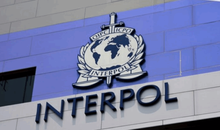
Wanted by Italy, member of a criminal organization captured in Fier
2025-06-30 11:55:53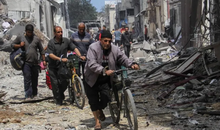
Hundreds of families displaced by wave of Israeli airstrikes in Gaza
2025-06-30 11:45:17
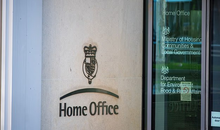
Zenel Beshi: The criminal who even 50 convictions won't move from Britain
2025-06-30 11:23:19
A new variant of Covid will circulate during the summer, here are the symptoms
2025-06-30 11:14:58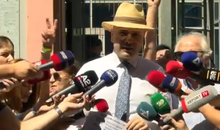
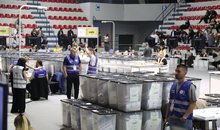
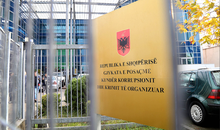
"Partizani" case, trial postponed to July 21 at the Special Court
2025-06-30 10:41:05
Uncontrolled desire to steal, what is kleptomania, why is it caused
2025-06-30 10:30:08
Requested change of security measure, hearing for Malltez postponed to July 7
2025-06-30 10:24:32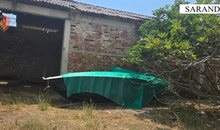
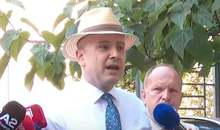

Output per working hour in Albania 35% lower than the regional average
2025-06-30 09:54:35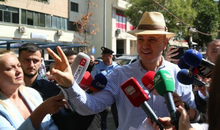
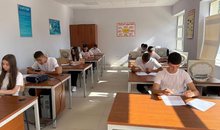
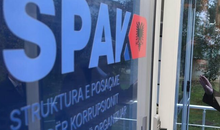
The trial for the "Partizani" file begins today
2025-06-30 09:27:57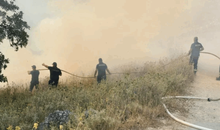
22 fires in the last 24 hours in the country, 2 still active
2025-06-30 09:21:28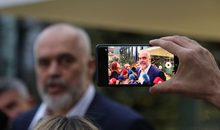
How is the media controlled? The 'Rama' case and government propaganda
2025-06-30 09:13:36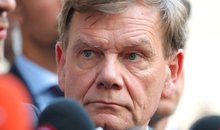
German top diplomat: Putin wants Ukraine to capitulate
2025-06-30 09:00:07
Foreign exchange, how much foreign currencies are sold and bought today
2025-06-30 08:44:38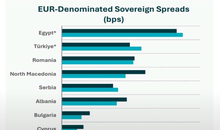
Chart/ Sovereign risk for Albania from international markets drops significantly
2025-06-30 08:26:38
Horoscope, what do the stars have in store for you?
2025-06-30 08:11:44
Clear weather and passing clouds, here is the forecast for this Monday
2025-06-30 07:59:32
Morning Post/ In 2 lines: What mattered yesterday in Albania
2025-06-30 07:47:37
Milan make official two departures in attack
2025-06-29 21:57:23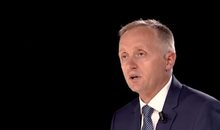
6 record tone
2025-06-29 21:30:46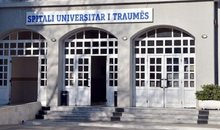
4-year-old girl falls from balcony in Lezha, urgently taken to Trauma
2025-06-29 21:09:58
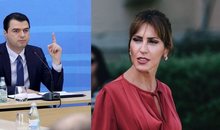

Assets worth 12 million euros seized from cocaine trafficking organization
2025-06-29 19:39:43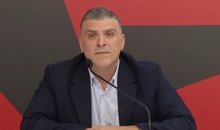
Fire in Durrës, Blushi: The state exists only on paper
2025-06-29 19:17:48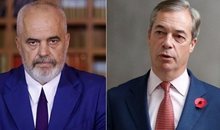

Fire endangers homes in Vlora, helicopter intervention begins
2025-06-29 18:27:51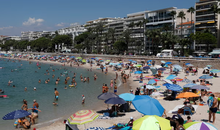
France implements smoking ban on beaches and parks
2025-06-29 18:02:08
England U-21 beat Germany to become European champions
2025-06-29 17:42:49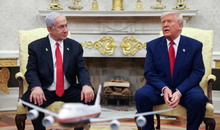
Trump criticizes Israeli prosecutors over Netanyahu's corruption trial
2025-06-29 17:08:10
Street market in Durrës engulfed in flames
2025-06-29 16:52:57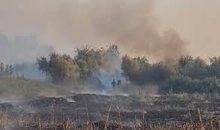

UN nuclear chief: Iran could resume uranium enrichment within months
2025-06-29 16:03:24
Albanian man dies after falling from cliff while climbing mountain in Italy
2025-06-29 15:52:01

Another accident with a single-track vehicle in Tirana, a car hits a 17-year-old
2025-06-29 15:07:15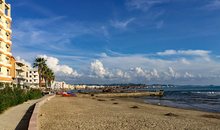
While bathing in the sea, a vacationer in Durrës dies
2025-06-29 14:54:01
Sentenced to life imprisonment, cell phone found in Laert Haxhiu's cell
2025-06-29 14:26:40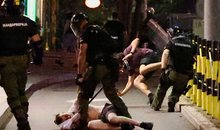
77 people detained in protest, Vučić warns of new arrests
2025-06-29 14:07:46